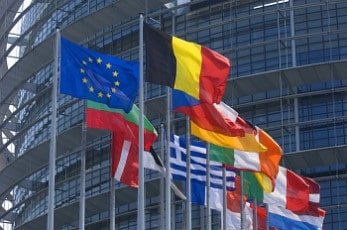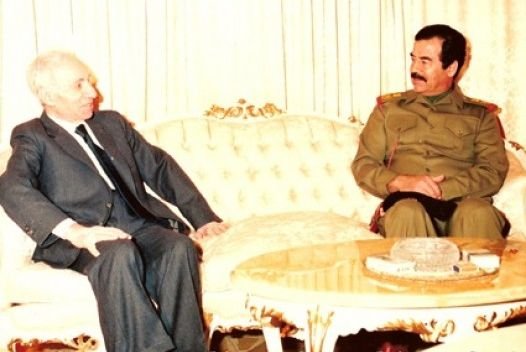The Drive Towards a United Europe is Self-defeating.
With 60 years having passed since the Treaty of Rome, the European Union and its predecessors have now shaped Europe for almost as long as the Soviet Union did. It is not an unnoticed irony that the EU’s 60th has coincided with the confirmation of the United Kingdom’s departure. The invocation of Article 50 of the Treaty on European Union by the UK’s government marks the first time a country has left the EU and raises the spectre of more following suit.
This comes amidst a somewhat turbulent atmosphere. Over the last decade Europe has struggled with an on-going debt crisis/farce; the migrant crisis/tragedy; the rebirth of an assertive/expansionist Russia; the rise of right-wing populist nationalism, with the awkwardness of German dominance (and everyone else’s impotence) becoming impossible to ignore.
Not only is the idea of leaving now a realistic possibility, which it was not supposed to be, but core aspects of the EU have also been eroded beyond recognition. For the short-term future at least, the Schengen Area has been put on hold. The idea that more economies will join the Euro seems like a joke. And illiberal nationalists are a major force across the continent and even in government in several countries.
For much of Europe’s elite, the solution remains to continue to push for deeper integration. Indeed, the idea that a united Europe would be “forged in crises” has been part of the project of “ever closer union” since the beginning. Ironically, though, it is precisely this singular vision that has long been at the root of much of the EU’s problems.
The rush to create the single currency was a manifestation of this, as was the impetus to make it as large as possible. More than anything, it was the vision of ever-closer union that drove both top-down (pushed by the EU) and bottom-up (national governments not wanting to be “left behind”) reasons for divergent economies joining. Germany and the Benelux countries sharing a currency may have worked well. Making the Eurozone as large as possible has not.
The apparent convergence and uniformity entailed by ever-closer union has also created the image of the EU as imposing itself on member states. This has proved a powerful engine of Euroscepticism, and was a factor behind Brexit. The conflict over the migrant crisis has also been coloured by this perception, as has the response to the Eurozone Crises. The fact that for many in Southern and Eastern European countries “Europe” is effectively a proxy for “Germany” has not helped.
Is reform possible?
It would be a shame for the EU to continue to undermine itself through inflexibility. For all its failings, the EU has had a positive impact. The mere fact that war has been avoided in (Western) Europe for so long is a marvel. The Internal Market has also been a huge achievement and remains the world’s largest single market. Freedom of Movement has also provided real social and economic benefits, in addition to being fundamentally morally justified, regardless of the hostility it faces in the present political climate.
A possible solution is accepting the “variable geometry” of a “multi-speed” or tiered EU, with varying levels of involvement. This would allow the Eurozone to move forward with development of a banking union and perhaps a co-ordinated fiscal policy, whilst maintaining opt-outs for Scandinavian countries and reduced obligations (and benefits) for increasingly Eurosceptic countries such as Poland. A shared foreign policy could be pursued whilst allowing for more varied external migration policies. A “cleaner” option could be to have a simple “two-tiered” option of full (i.e. Eurozone) membership and associate (single market) membership.
There’s a lot to be said for such a model. I am sceptical, however, that it could get off the ground. It is true that ever-closer union has quasi-officially been put on hold and that even staunchly pro-EU leaders have expressed concern over unabated integration. A by-product of Germany begrudgingly inching towards accepting its status as the friendly neighbourhood hegemony may be a diminished role for Brussels. However, importantly, this looks like much more of a compromise than a positive shift in aims and ideals.
In practice ever-closer union may be, if not dead, in cryogenic suspension. But the principle continues to be the driving ideology in Brussels for the simple reason that there is a deep-seated fear that anything else means the death of the EU. This may reflect a problem with the idea of what Europe should be. If your starting position is a perfectly realised end-goal (a truly “United States of Europe”, for instance), compromise can be tolerated only to the extent that it furthers that goal and any adjustment of the goal itself is anathema. Whilst serious reform may be mooted and backed by important figures, it is likely to be trapped between the horns of being mere window dressing and being seen as the compromise that destroyed the dream of Europe.
The UK’s withdrawal has made the situation worse for several reasons. First, there is a belief among some EU leaders that Brexit means that the UK has to be actively punished. If the UK can withdraw on favourable terms and, especially, be served Europe-a-la-carte, this could set a “dangerous” precedent.
Secondly, the UK’s departure will strengthen the true believers given that the UK has long been the loudest, and largest, advocate of both Euro-scepticism and alternative approaches to Europe. Whilst the former has been better known in recent years, the latter has played a key (and probably more important) role in keeping the centralising federalists in check. It is worth noting that the creation of the Single Market was primarily driven by the UK. This was once characterised as the “looser, larger, Europe” vision, that sought to expand the EU and, without being against integration, allowed for more flexibility and less regulation. Such views do continue to exist, but without the UK the balance will be radically shifted in favour of the centralisers, opposed only by nationalists seeking to undermine the EU completely.
Thirdly, to the extent that a more varied EU emerges from the next few years, the absence of the UK will mean that it looks much more like a tiered system of a core Eurozone (plus maybe Sweden) and outsiders or even second class Member States. This would mean a ‘multi-speed’ EU, which remained premised on the idea that everyone was heading to the same eventual goal, even if they did so at their own pace. Had the UK still been a Member State, the balance between core and periphery would not have been as extreme, and long-term variable geometry could have been viable.
Admittedly, were the UK to remain a member of the European Economic Area, this could still hold to some degree, with periphery members having membership terms that in some ways resembled the relationship with EEA members more than the membership terms of core members, and the UK bolstering the EEA to act as a counterweight to the influence of the Eurozone. As it is, though, this will almost certainly not happen, given the seemingly intractable conflict between the EU’s recalcitrant refusal to let the UK have its cake and eat it and the UK’s monomaniacal fixation on ending freedom of movement at any cost.
Where do we go now?
Ultimately, despite short-run setbacks, the EU is likely to remain defined by the drive towards uniform integration. This is unlikely to do much to ameliorate nationalist and populist opposition and could well inflame and normalise it in the medium term. This is not to say that the EU will inevitably collapse. Absent a radical shock, such as Marine Le Penn taking the French Presidency, it probably won’t.
Nevertheless, ploughing on towards ever-closer union regardless of the response and the consequences will do much towards, ironically, entrenching divisions and instability across Europe. And an EU that continues to face stymied reforms, constant resentment and resistance, and a persistent nationalism epidemic will find itself continually unable to tackle the problems that surround it.








Article Discussion